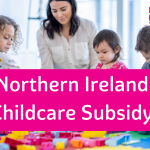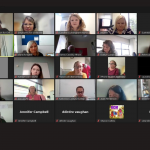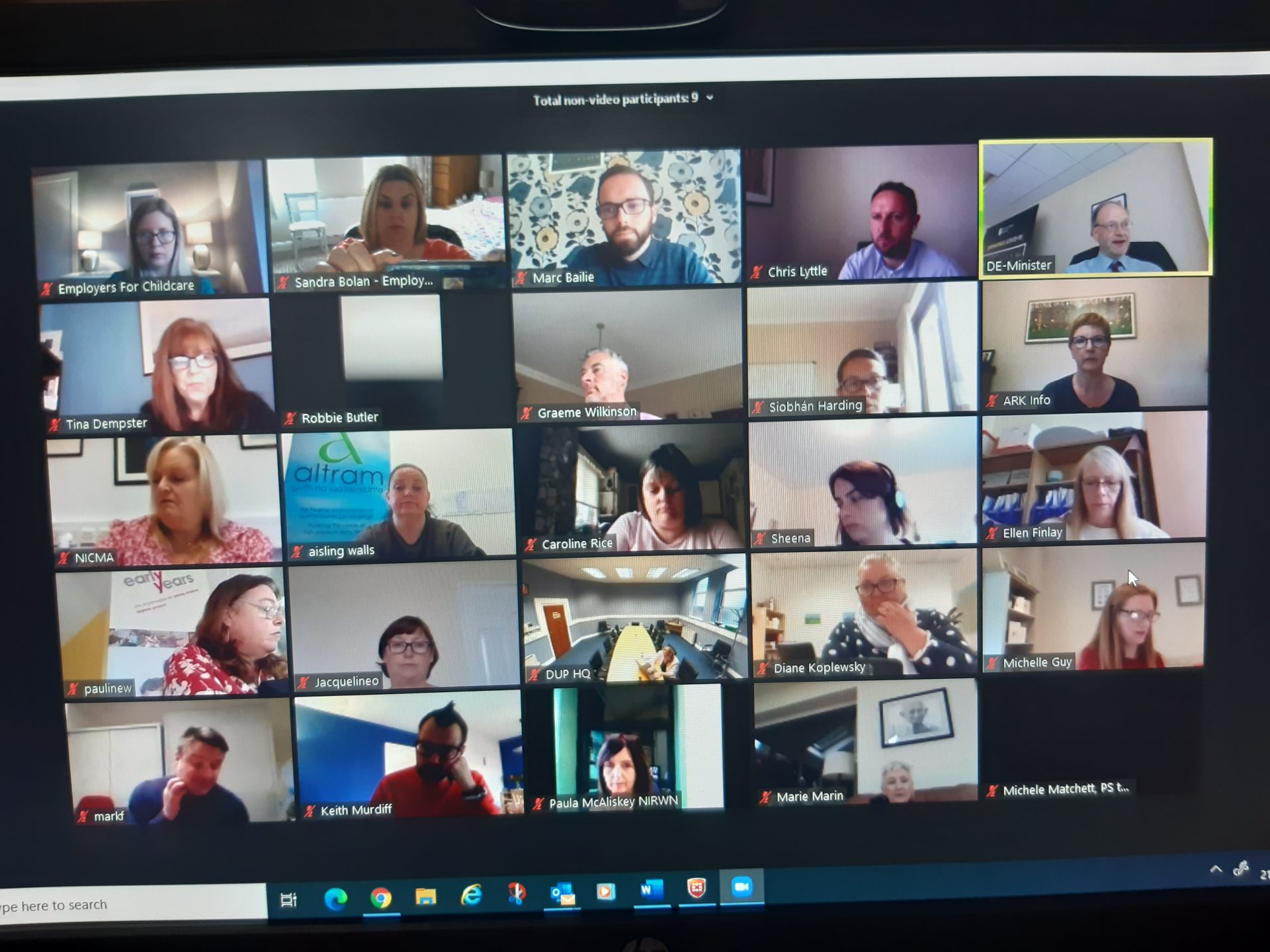Managing COVID-19: Advice for employers and working parents
It’s only mid-September and already there have been a significant number of cases of coronavirus recorded in Northern Ireland schools (88 positive cases in 64 schools as of 8 September). This has resulted in a number of schools having sent children and classes home to self-isolate for 14 days. Even without confirmed cases, the usual round of winter colds and sniffles has already started and many parents have had to keep children at home from school with coughs and high temperatures, that may or may not be coronavirus-related.
But what does this mean for working parents and their employers?
Current advice, issued by the Department of Education on 10 September to the parents and carers of all school children is the following:
- If a child has COVID-19 symptoms: child and household self-isolates, child gets tested, if negative can return to school provided no fever for 48 hours and they haven’t been advised by the Public Health Agency to self-isolate.
- If a child tests positive: child and household self-isolates for at least ten days, as advised by Public Health Agency.
- Someone in household displays COVID-19 symptoms: child and household self-isolates, symptomatic person gets tested, if negative, child can return to school if they haven’t been advised by the Public Health Agency to self-isolate.
- Someone in household tests positive: child does not go to school and can only return after 14 days of self-isolation without any symptoms.
- Child identified as a close contact through contact tracing: child does not go to school and self-isolates for at least 14 days as advised by Contact Tracing Service. Child only returns to school after 14 days of self-isolation without any symptoms.
- Child in contact with someone who has been identified as a close contact: child attends school as normal and if no COVID-19 symptoms, they should carry on with their normal activities
- Child has travelled abroad and has to self-isolate: child does not attend school and self-isolates for 14 days in line with quarantine advice, only returning to school if no symptoms develop.
While these guidelines have been developed primarily for parents, it is important that employers are also familiar with the advice around these scenarios, most of which require a child to complete a period of self-isolation. In reality, this will mean many parents will also be unable to attend their usual place of work as they will either have to provide childcare (including home-schooling) during the period of self-isolation, may be self-isolating themselves or they could be caring for an unwell child.
How can employers support their employees?
It will be important that employers can take a flexible approach with their employees as the COVID-19 pandemic continues. There are a number of options available for employees who are required to stay at home with their children:
- Working from home – this may not be an option for everyone, but where possible, should be made available. If an employee is caring for a sick child, however, this may not be feasible, and employers should not expect employees to be able to work as normal.
- Dependent’s leave – depending on your policies, your employee may be able to take a period of dependent’s leave, but for most, this is unlikely to cover a 14 day period of self-isolation (or longer if the child subsequently becomes unwell).
- Annual leave – employees may be able to use some of their annual leave allowance.
- Unpaid leave – if no other options are available, unpaid leave may be available in some cases, such as Parental Leave where qualifying parents can take off up to 18 weeks per child, up until the child’s 18th For more information on Parental Leave, download our Employment Rights for Working Parents Factsheet here.
Statutory Sick Pay
Employees who are unable to work as a result of having a child at home who is unwell with the symptoms of COVID-19 or self-isolating may be eligible to receive Statutory Sick Pay (SSP). The Government’s guidance states that you are eligible for SSP if you are self-isolating because you, or someone you live with, has symptoms or has tested positive for COVID-19, provided you self-isolate for at least four days. Employees can claim SSP for every day they were self-isolating on or after 13 March.
If an employee is self-isolating because of contact with someone who has coronavirus, having been notified by the Public Health Agency through their test and trace system, they are entitled to claim SSP for every day they were self-isolating from 28 May, but must have self-isolated for at least four days to be eligible.
Employees who are self-isolating because someone in their ‘support bubble’ or extended household has symptoms, or has tested positive for coronavirus, can claim SSP for every day they were self-isolating from 6 July, but must have self-isolated for at least four days to be eligible. They will not be eligible for SSP for any days away from work before 6 July.
Anyone who is self-isolating because of coronavirus and is unable to work will be able to get an ‘isolation note’ online from NHS111 if off work for seven days or more. They do not have to go to a doctor or the hospital.
We appreciate that this guidance is complex and it is a challenging time for employers, many of whom are already facing difficulties due to the economic impact of COVID-19. We would encourage employers to take a flexible approach, where possible, and to support their employees where they can – remember, adopting family friendly policies in the workplace can boost staff loyalty, increase staff retention and may improve productivity in the longer term from having a happier, more contented workforce.
Our Family Benefits Advice Service offers advice and guidance to employers on issues around family friendly working policies, parental rights and entitlements and employer responsibilities – to speak to one of our trained advisors call 028 9267 8200.






